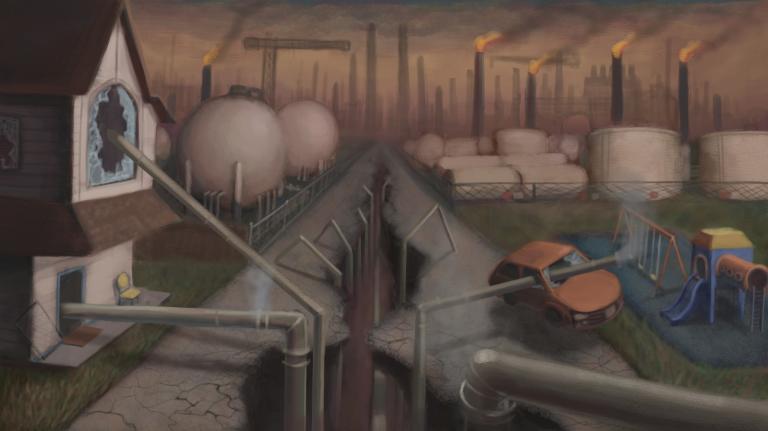With 20 million jobs at stake globally, China poured $440 billion into clean energy last year. Our only hope to match them is the bipartisan climate and clean energy jobs bill
It is shaping up to be the Great Game of the 21st century. To top officials and business executives here at the World Economic Forum, Topic A this year was the race to develop greener, cleaner technology…. it is a battle for potentially millions of jobs and trillions of dollars in export revenues.
“Six months ago my biggest worry was that an emissions deal would make American business less competitive compared to China,” said Senator Lindsay Graham, a Republican from South Carolina who has been deeply involved in climate change issues in Congress. “Now my concern is that every day that we delay trying to find a price for carbon is a day that China uses to dominate the green economy.”
He added: “China has made a long-term strategic decision and they are going gang-busters.”
Christine Lagarde, the French finance minister, agreed. “It’s a race and whoever wins that race will dominate economic development,” she said….
In the energy sector alone, the deployment of new technologies, like wind and solar power, has the potential to support 20 million jobs by 2030 and trillions of dollars in revenue, analysts estimate.
That’s the NY Times reporting Saturday from Davos, “Race Is on to Develop Green, Clean Technology.” And they have another terrific piece today on the front page from Tianjin, “China Leading Global Race to Make Clean Energy.”
Politics aside, what is most amazing about the emergence of the conservative senator from South Carolina as a leader on climate and clean energy is that he is clearly better at messaging on this than most progressives, possibly even including the president. Why?
Graham understands the core issues and is not afraid to be blunt about them — see Lindsey Graham: “The idea of not pricing carbon, in my view, means you’re not serious about energy independence. The odd thing is you’ll never have energy independence until you clean up the air, and you’ll never clean up the air until you price carbon.”
Some 20 million jobs — and trillions in wealth — by 2030 are at stake, and America may give up without much of a fight. We only have one hope of matching China, as I (and others) have said again and again (see “The only way to win the clean energy race is to pass the clean energy bill“).
The one-time stimulus bill had nearly $100 billion of federal clean energy investment that generated some $100 billion of private sector clean energy investment. But as Graham understands, we can only come close to that level of U.S. investment each year with a rising price for carbon .
That should be obvious to all, but few in the traditional media really get it besides columnist Tom Friedman. The two NYT pieces this weekend constitute the best straight news reporting on the subject I’ve seen, so let me except them at length, starting with the Davos piece.
In China, the government poured an estimated $440 billion into clean energy last year. It is investing heavily in renewable energy and nuclear power. It also is pursuing efforts to make extraction of its vast coal reserves cleaner. Already home to one-third of the globe’s solar-energy manufacturing capacity and 400 solar-energy companies, China is expected to surpass Spain this year as the No. 3 country in terms of wind power installations, behind Germany and the United States….
In the United States, meanwhile, President Barack Obama faces an uphill battle in Congress to pass politically-sensitive legislation aimed at capping carbon emissions.
“China has the type of centralized industrial policy that we can’t match and don’t want in the United States or the European Union,” said Fred Krupp, president of Environmental Defense, a U.S. advocacy group. “What we have to compete with China is the power of our marketplace. A clear and declining cap on carbon emissions will send the essential market signal to industry, and that will engage our market directly in this competition.”
Precisely.
China gets it, which becomes even clearer from today’s piece:
Renewable energy industries here are adding jobs rapidly, reaching 1.12 million in 2008 and climbing by 100,000 a year, according to the government-backed Chinese Renewable Energy Industries Association….
As China seeks to dominate energy-equipment exports, it has the advantage of being the world’s largest market for power equipment. The government spends heavily to upgrade the electricity grid, committing $45 billion in 2009 alone. State-owned banks provide generous financing.
China’s top leaders are intensely focused on energy policy: on Wednesday, the government announced the creation of a National Energy Commission composed of cabinet ministers as a “superministry” led by Prime Minister Wen Jiabao himself.
Regulators have set mandates for power generation companies to use more renewable energy. Generous subsidies for consumers to install their own solar panels or solar water heaters have produced flurries of activity on rooftops across China.
China’s biggest advantage may be its domestic demand for electricity, rising 15 percent a year. To meet demand in the coming decade, according to statistics from the International Energy Agency, China will need to add nearly nine times as much electricity generation capacity as the United States will.
Again, there is only one way American could possible match China’s advantages — we need to create rising domestic demand in this country for low-carbon energy. And that, as Lindsey Graham understands, requires a price on carbon, since we’re obviously not going to deficit-finance federal spending on China’s scale.
The question is, are there 59 other Senators who understand this — or will anti-science ideologues kill the bill and strangle those millions of potential American jo
bs in the proverbial crib? We will find out this year.
Related Post:


